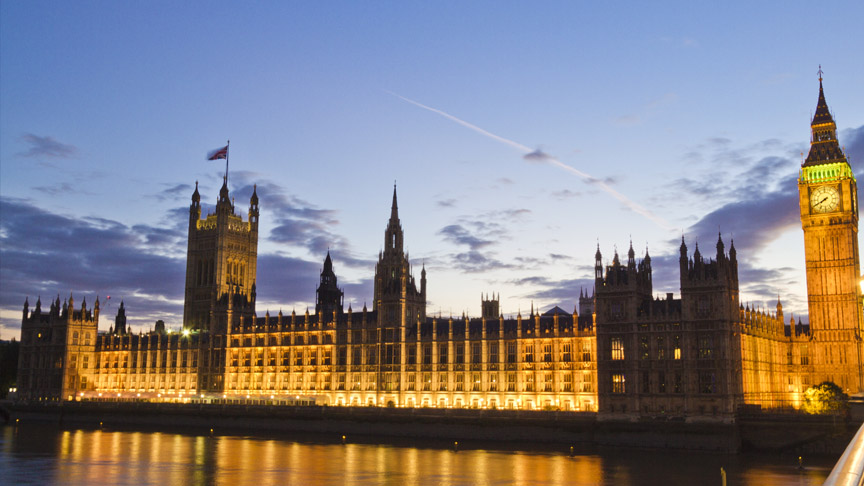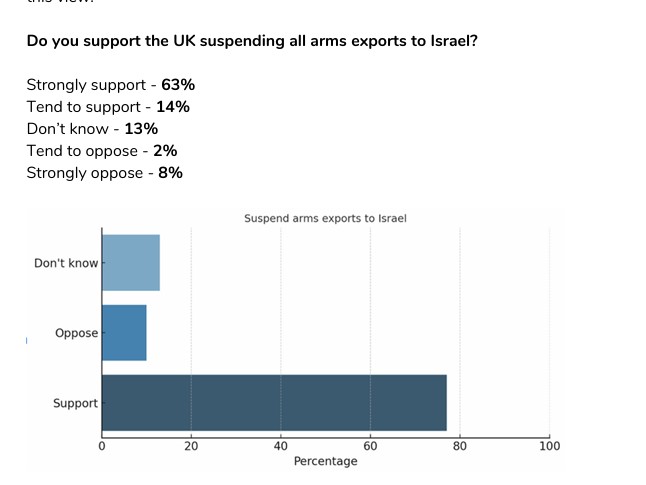
Elham Asaad Buaras
Labour is under growing internal pressure to adopt a tougher stance on the war in Gaza, as most of its Muslim MPs, councillors and mayors demand urgent action, including sanctions on Israel and a halt to UK arms exports.
In the first-ever survey of Muslim representatives within the Labour Party, conducted by the Labour Muslim Network (LMN), 77% of respondents supported an arms exports ban to Israel, 84% backed sanctions against the Israeli government, and 97% called for the immediate recognition of the state of Palestine.
The survey, carried out between April 2 and May 16, received 221 responses from 477 eligible Labour officials. The findings reflect rising frustration within the party over what many view as a mishandling of the crisis in Gaza, where conditions have worsened amid ongoing military operations and restrictions on humanitarian aid.
On June 4, Labour leader Keir Starmer acknowledged Gaza’s “dark days” during an address in the Commons and promised to consider “further action.” The UK government has already suspended trade talks with Israel and imposed sanctions on Israeli settlers in the occupied West Bank.

There are also calls for the UK to join France in formally recognising Palestine—a move already made by more than 140 countries including Spain, Ireland and Norway. Such a step would carry significant weight, particularly given Britain’s historical role in the region prior to 1948.
Ministers are reportedly weighing further sanctions, including against far-right Israeli officials Bezalel Smotrich and Itamar Ben-Gvir.
While UK arms exports make up less than 1% of Israel’s defence imports, Foreign Secretary David Lammy suspended 30 licences last autumn in a symbolic move. A judicial review has since been launched, challenging the legality of continuing to export parts for F-35 fighter jets that could potentially be used in breaches of international law.
In Parliament on June 4, Labour MPs from the party’s left wing echoed calls for accountability. Middle East minister Hamish Falconer criticised recent Israeli restrictions on aid delivery as “inhumane,” warning that they “foster desperation and endanger civilians.”
“We are appalled by repeated reports of mass casualty incidents in which Palestinians have been killed while trying to access aid,” he said. “Desperate civilians who have endured 20 months of war should never risk death just to feed their families. An independent investigation is essential, and those responsible must be held to account.”
In March, Lammy told MPs that Israel may have violated international law by obstructing aid—a claim Downing Street swiftly distanced itself from the following day.
Labour’s perceived equivocation has already affected its electoral performance. The party lost ground to pro-Gaza independents in several constituencies with large Muslim populations, including Dewsbury and Batley, Blackburn, Birmingham Perry Barr and Leicester South. Labour narrowly held Ilford North, where Health Secretary Wes Streeting faced a strong challenge.
The LMN survey also exposed deeper frustrations among Muslim Labour officials. Fifty-eight percent said the government had poorly represented British Muslims. Two-thirds believed Muslim representatives were not treated equally within the party. One in three reported directly experiencing Islamophobia, while over half said Labour was not taking the issue seriously.
“This report is a call to action,” said an LMN spokesperson. “We need a renewed commitment to Muslim representation rooted in equality and justice. Labour cannot credibly claim to be an anti-racist movement while ignoring the voices and experiences of its own elected Muslim officials.”
A Labour spokesperson responded, “We are proud of the diversity within our party, including the rising number of Muslim MPs, the appointment of Shabana Mahmood as the UK’s first Muslim Lord Chancellor, and the leadership of Sadiq Khan as London’s first Muslim mayor. The Labour Party takes all complaints of discrimination, including Islamophobia, seriously and assesses them through an independent complaints process.
Photo: Palace of Westminster (Credit: Wikimedia)